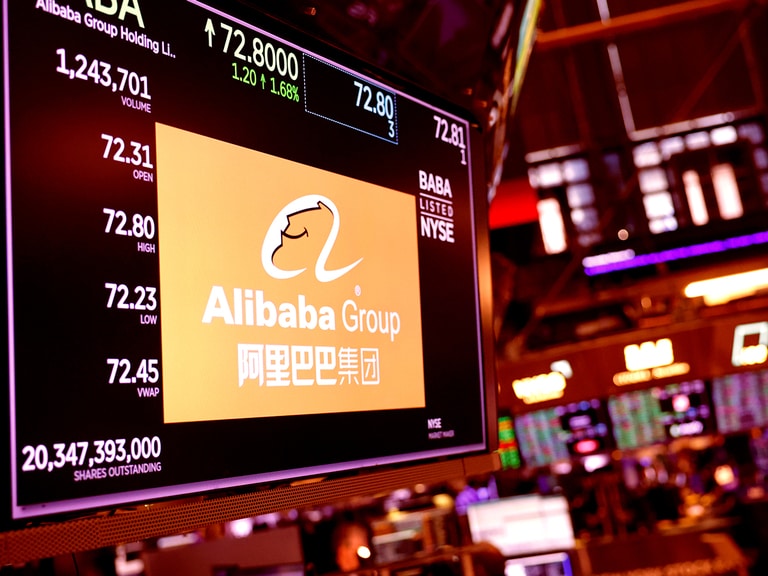With a background in indexing, Anthony Ginsberg is a strong advocator of exchange-traded funds (ETFs). The founder and CEO of GinsGlobal Index Funds recently spoke with Opto about the thematic investing space and gave his outlook for cloud computing, technology and healthcare.
Investors looking for a bargain should shift their attention to the cloud, Anthony Ginsberg, the founder of GinsGlobal Index Funds, tells Opto. While the firm’s HANS-GINS Cloud Technology Equal Weight UCITS ETF [SKYY] is down 30.5% in the year-to-date (through 20 October), in the past month it has been narrowing its losses, having fallen just 9.5%.
Ginsberg reckons that cloud company revenues are growing at an average of 40% year-on-year, as the boosts that firms like Zoom [ZM] and Slack, now owned by Salesforce [CRM], received as a result of a mass shift to work-from-home arrangements. “It doesn’t seem to be ebbing,” Ginsberg says. “In fact, there’s projections from the expert group, Gartner research saying that about 50% of all IT spend is basically moving towards the cloud by 2025”.
Indeed, according to recent data from LinkedIn, home working is here to stay in some shape or form for the foreseeable future. The professional networking platform says that pre-pandemic, just 2% of the 14-15 million job listings live at any one time would mention remote working. Today, that figure stands at 15%. To make sure they can facilitate flexible working, companies will need to keep using the services of cloud computing firms.
These firms also have stronger business fundamentals than their 2001 Silicon Valley counterparts, many of which crashed after the bubble burst around their valuations. He points to the fact that solid recurring revenue streams based on subscriptions make it easier to forecast what growth will look like on a quarterly or annual basis. Of the tech industry as a whole, “It’s grown up. It’s no longer a teenager doing silly things,” says Ginsberg. “When you look at the way these tech firms work today, the cloud guys are all doing monthly subscription revenue [and] the cybersecurity companies are much more conservatively run.”
An equal weighted approach
The bigger picture does look positive for cloud computing companies, particularly at a time where growth stocks have fallen out of favour. But this isn’t the only reason why Ginsberg’s ETF is clawing back its losses — it seems to be doing so in good company. By comparison, the Global X Cloud Computing ETF [CLOU] dropped over 7% in the last month, while the Fidelity Cloud Computing ETF [FCLD] is down 8.4% over the same period. The Ark Innovation ETF [ARKK], which includes cloud computing firms such as music streamer Spotify [SPOT] and cloud communications business Twillio [TWLO], is down 14.6%.
However, unlike actively managed ETFs where a firm’s investors make calls on which stocks they want in the portfolio and how they are weighted, the GinsGlobal’s fund tracks the Solactive Cloud Technology Equal Weight Index, which provides an equal exposure to the top 75 firms in the cloud computing space.
The SKYY ETF’s holdings include Extreme Networks [EXTR], which makes wireless infrastructure equipment, and cybersecurity firms Cloudflare [NET] and Snowflake [SNOW], among others.
When the fund launched in October 2018, Ginsberg says the cloud space was seen by investors as “a place you had to pick a winner”. The belief was that firms would choose their fighter — Amazon, Microsoft or Google — and use them for all their cloud needs, with a top player eventually emerging. In fact, as the sector has matured, companies have shown a preference for using multiple cloud providers, picking and choosing them for what they each do best.
Tracking thematic trends
The firm’s HANS-GINS Tech Megatrend Equal Weight ETF [ITEK.L] takes a similar approach, tracking the Solactive Innovative Technologies Index. It is currently down 43.7% in the year-to-date, but like SKYY has cut back its losses over the past month, having fallen just 8.6%. The fund has 113 holdings and is rebalanced every six months.
The exception is the firm’s HANS-GINS Indxx Healthcare Megatrend Equal Weight ETF (WELL.L), which tracks the Indxx Global NextGen Healthcare Index that focuses on megatrends such as genome sequencing and robotics. Here there is exposure to the cloud, too — Ginsberg points to the emergence of telehealth as one of the major trends for the sector. The ETF is currently down 33.8% for the year, and 5% in the past month. This puts it slightly head of the iShares Healthcare Innovation ETF [HEAL.MI], which has fallen 5.2% over the past month.
Ginsberg says that he was inspired to start GinsGlobal after looking at the success rates of active fund managers and realising that “the majority underperform quite miserably”. According to the S&P Indices versus Active scorecard, 79% of fund managers fail to beat the S&P 500, CNBC reported earlier this year.
He launched GinsGlobal in 2000, and today the firm manages over $5bn across its 14 funds. Prior to launching his own firm, he worked for Barclays as the director of offshore services.
Ginsberg, whose background is in indexing, decided that he could set up his own ETFs that offered increased diversity by using an equal weight approach, rather than making big bets on the success of one or two companies. It’s the polar opposite approach compared to someone like Cathie Wood, who is known to heavily favour Tesla [TSLA] when it comes to stock picking stocks for her funds.
He even thinks that his strategy is a safer bet than ETFs that market-match the indexes they are tracking — which also risk becoming overexposed to a small number of big players, Ginsberg warns, given the huge valuations of companies like Apple [AAPL] and Amazon [AMZN].
“By equally weighting it, we don’t have overexposure to the FAANGs,” says Ginsberg, who says that his funds have been developed with insurance firms and private banks in mind — the sort of customer who wants exposure to Silicon Valley’s growth, but also doesn’t want to be exposed to unnecessary levels of risk.
Disclaimer Past performance is not a reliable indicator of future results.
CMC Markets is an execution-only service provider. The material (whether or not it states any opinions) is for general information purposes only, and does not take into account your personal circumstances or objectives. Nothing in this material is (or should be considered to be) financial, investment or other advice on which reliance should be placed. No opinion given in the material constitutes a recommendation by CMC Markets or the author that any particular investment, security, transaction or investment strategy is suitable for any specific person.
The material has not been prepared in accordance with legal requirements designed to promote the independence of investment research. Although we are not specifically prevented from dealing before providing this material, we do not seek to take advantage of the material prior to its dissemination.
CMC Markets does not endorse or offer opinion on the trading strategies used by the author. Their trading strategies do not guarantee any return and CMC Markets shall not be held responsible for any loss that you may incur, either directly or indirectly, arising from any investment based on any information contained herein.
*Tax treatment depends on individual circumstances and can change or may differ in a jurisdiction other than the UK.
Continue reading for FREE
- Includes free newsletter updates, unsubscribe anytime. Privacy policy





